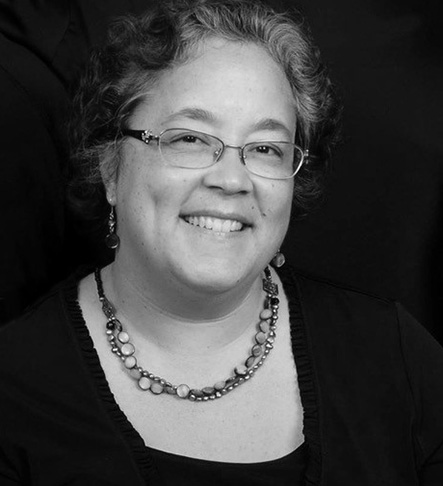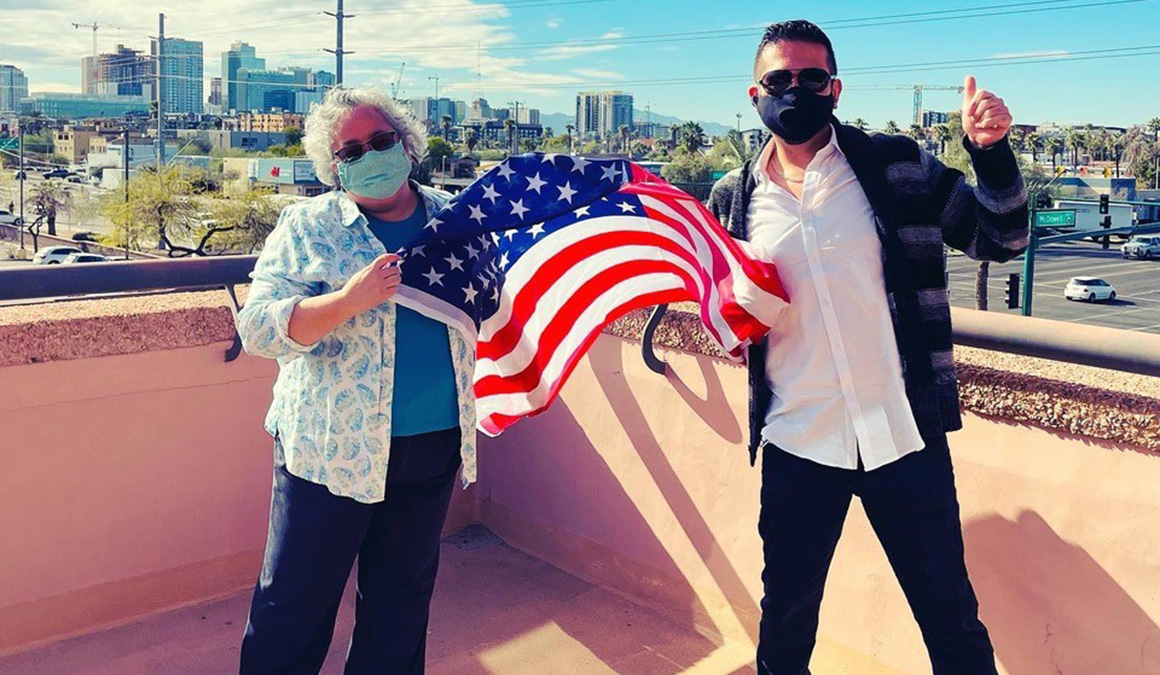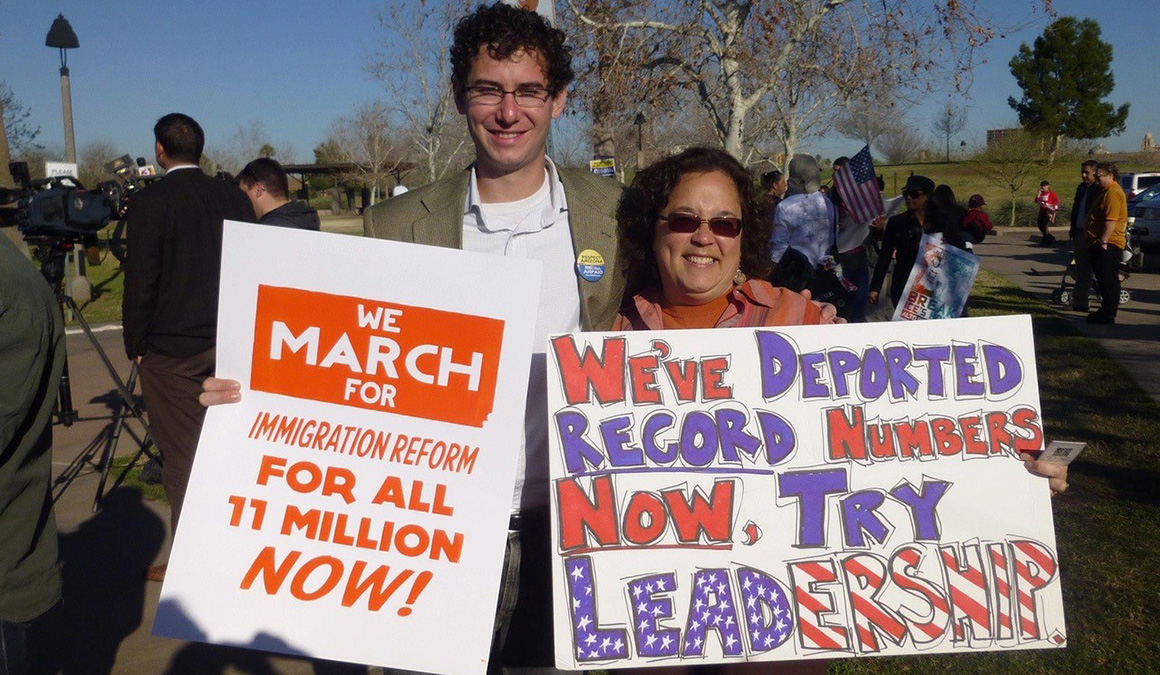Jillian Kong-Sivert ’91
Aiding the dreamers and doers.

Attorney Jillian Kong-Sivert ’91 helps immigrants navigate a challenging legal system.
On the outskirts of Phoenix in a law practice she founded over a decade ago, Jillian Kong-Sivert ’91, bears daily witness to the struggles of immigrants.
For the first five years of her practice, Kong-Sivert worked hard to be known as someone that people in desperate need could count on. Now her clients are almost entirely by referral and for many of them, she’s “the family lawyer,” helping those who are facing deportation, or are trying to get work permits, green cards, or citizenship.
“If you are the kind of lawyer with the heart of a teacher, you want to be able to take the long view with an entire family,” explains Kong-Sivert. “One member of the family legalizes and petitions another, who naturalizes and then petitions another. Because of restrictions and quotas (in the U.S.) there are some projects in immigration law that take a generation or more to play out.”
At this stage in her career, she’s seeing the fruits of those labors.
 Jillian Kong-Sivert ’91, left, and a client celebrate a big legal victory on the balcony of her office in the Phoenix area.
Jillian Kong-Sivert ’91, left, and a client celebrate a big legal victory on the balcony of her office in the Phoenix area.
Hailing from Columbia, Maryland, Kong-Sivert is a second-generation immigrant, with family from Appalachia, Hong Kong, and Jamaica. As an English major at Grinnell, and even today, she’s “very taken with the evocative and instructive power of language. It is no small feat to control a reader’s experience of a message and to use that tool to get at something deeper and harder to access.”
After graduating from University of Iowa law school in 1994, she didn’t immediately start practicing. Back home in Maryland, Kong-Sivert instead spent a decade working for various legislators, helping draft bills, and doing research. At Senator Barbara Mikulski’s office, she was assigned to work on immigration because there had been new legislation [The Illegal Immigration Reform and Immigrant Responsibility Act of 1996], and it was causing a lot of disruption and hardship. No one else wanted that caseload. Kong-Sivert became an expert at it, though she’d never studied the topic previously.
She then went to work for the Lutheran Immigration and Refugee Service and later Amnesty International, working on immigration policy and research. After 10 years she decided to start practicing immigration law, first in Virginia and then in Phoenix, where she and her husband and two kids moved in 2006. In 2010 she opened her own practice.
“I spent a lot of years afraid to hang up my own shingle and the ensuing years wishing I had had the guts to do it sooner,” says Kong-Sivert. Her clients are almost all essential workers. They do not have access to the kind of resources that would allow her to see them virtually.
“There is an awareness that we practice in a field that invites all sorts of strong emotions in an environment and a locality that does not have a good handle on its abusers, extremists, and gun enthusiasts,” Kong-Sivert says. “Arizona’s utter collapse of leadership in the face of COVID-19 only exacerbated all of those tensions.
“Mask-wearing and distancing becomes just another battleground on which the public feels free to air their grievances against us,” she adds “I have had to eject a potential client for refusing to wear a mask in the office, waving a lanyard and pamphlets about his rights and insisting that I of all people as a lawyer should be protective of those rights.”
 Jillian Kong-Sivert ’91 and her former associate, Daniel Lubarsky-Ford ’08, hold up signs for immigration reform.
Jillian Kong-Sivert ’91 and her former associate, Daniel Lubarsky-Ford ’08, hold up signs for immigration reform.
Kong-Sivert notes that immigration lawyers tend to be solitary.
“We probably skew a little ornery and contrarian,” she says. “We are mostly mom and pop shops – solo & small practices – under-resourced with too much on our minds and no time. We haven’t always been the types to network. But if the Trump era gave us one gift it really did galvanize us into a group. Now, if we see each other in the halls of the detention center or court, there is a recognition, something like bearing witness. There is a solidarity.”
Kong-Sivert occasionally lends her expertise to Grinnell students dealing with confusing or tricky immigration paperwork, and she recently hired her 10th Grinnell intern, Olivia Jensen ’21, to work for her this summer.
“I’ve never had an intern from Grinnell that wasn’t really smart, really crackerjack,” Kong-Sivert says. “Some want to do human rights work, others international relations, and others want to be lawyers. They’re so nimble and have so many skills and they really go for it.”
As for Kong-Sivert, there are key parts to her work that she loves. “I love that connection to the community. I’ve seen people who came to me 10 years ago, uncertain that they had a future in the U.S. Once we’ve been through fighting for them in court and winning a green card and then getting citizenship, it’s really validating. They want to set themselves up to turn around and hire the next guy. It’s incredibly energizing to be around people like that.”
— by Anne Stein ’84
Coming from diverse socioeconomic, cultural, and intellectual backgrounds, Grinnellians form tight friendships and a deeper knowledge of both ourselves and other humans. Tom Wickersham ’90 and Melanie Drake ’92 brought the community of Cedar Falls together in support a food co-op. In her Grinnell coursework, Kaya Prasad ’19 was able to explore the various lines along which humans divide themselves.